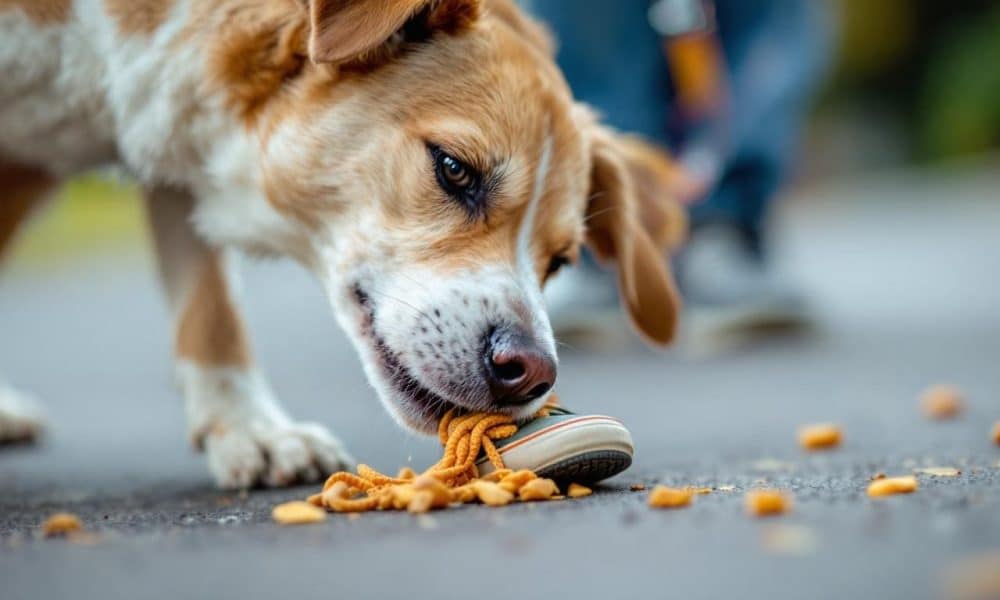
“This post contains affiliate links, and I will be compensated if you make a purchase after clicking on my links.”
At DogingtonPost, we’ve seen countless dog owners struggle with bad habits that affect their pets’ well-being.
Breaking these bad dog owner habits is crucial for your furry friend’s health and happiness.
In this post, we’ll explore common mistakes and provide practical tips to help you become a better pet parent.
What Are the Most Common Bad Dog Owner Habits?
Inconsistent Training and Discipline
Dog owners often struggle to maintain a consistent approach to training and discipline. This inconsistency confuses dogs and can lead to behavioral issues. The Association of Professional Dog Trainers reports that 68% of dog owners find it challenging to stick to consistent training routines. As a result, dogs may develop disobedience, anxiety, or even aggression.
Neglecting Exercise and Mental Stimulation
Many owners underestimate their dogs’ need for regular physical activity and mental challenges. 56% of dogs in the United States are classified as overweight or obese, often due to insufficient exercise. A lack of mental stimulation can also trigger destructive behaviors and anxiety in dogs.
Poor Nutrition Choices
Overfeeding and selecting low-quality dog food rank among the most common mistakes. The Association for Pet Obesity Prevention found that 59% of dogs are overweight, with many owners unaware of proper portion sizes. Feeding table scraps or unsuitable human food (like chocolate or grapes) can lead to obesity and other health issues. It’s essential to consult with a veterinarian about appropriate diet plans for your dog’s specific needs.
Ignoring Dental Health
Dog owners frequently overlook dental care, yet it’s vital for a dog’s overall health. The American Veterinary Dental College reports that most dogs show signs of periodontal disease by age three. Regular teeth brushing and dental check-ups can prevent serious health issues, including heart and kidney problems linked to poor oral hygiene.
Skipping Regular Vet Check-ups
Preventive care plays a key role in a dog’s long-term health, but many owners skip routine vet visits. The American Animal Hospital Association reports a 21% decline in veterinary visits for dogs in recent years. Regular check-ups can catch health issues early, potentially saving both money and heartache in the long run.
Now that we’ve identified these common bad habits, let’s explore effective strategies to break them and create a healthier, happier life for your canine companion.
How to Break Inconsistent Training Habits
Inconsistent training can hinder a dog’s progress and create confusion. We’ll explore effective strategies to establish a consistent training routine that will benefit both you and your furry friend.
Set a Clear Training Schedule
A structured routine forms the foundation of successful dog training. The American Kennel Club suggests dedicating at least 15 minutes twice daily for training sessions. Select times when both you and your dog are alert and free from distractions (such as early morning or evening). This regularity helps your dog anticipate and prepare for learning opportunities.
Master Positive Reinforcement Techniques
Positive reinforcement proves highly effective in dog training. A study revealed that dogs trained with positive reinforcement methods exhibited fewer behavioral problems. Identify your dog’s favorite treats or toys as rewards. Offer these rewards immediately after your dog performs the desired behavior to create a strong association.
Create a United Front in Training
Consistency across all family members accelerates your dog’s learning process. Organize a family meeting to agree on commands, hand signals, and reward systems. This unified approach eliminates confusion and enhances your dog’s understanding.

Seek Professional Guidance When Needed
Dog training requires time, effort, and sometimes expert assistance. If you struggle to see progress or face complex behavioral issues, consider consulting a certified dog trainer. The International Association of Animal Behavior Consultants can connect you with qualified professionals in your area who can provide tailored solutions for your specific situation.
Practice Patience and Persistence
Establishing new habits takes time for both dogs and humans. Celebrate small victories along the way, and maintain your commitment to consistent training. Your efforts will yield significant improvements in your dog’s behavior and strengthen your bond.
As we address inconsistent training habits, it’s equally important to focus on your dog’s physical and mental well-being. Let’s explore how to provide adequate exercise and mental stimulation to keep your furry friend happy and healthy.
How to Boost Your Dog’s Physical and Mental Health

Create an Engaging Exercise Routine
Dogs need regular physical activity to maintain a healthy weight and prevent behavioral problems. The amount of exercise varies by breed, age, and health status. High-energy breeds like Border Collies may need up to 2 hours of exercise daily, while smaller breeds like Chihuahuas might be satisfied with 30 minutes.
Start by assessing your dog’s current fitness level. Increase activity duration and intensity gradually to avoid injury. Mix up your routine with activities like brisk walks, fetch, swimming, or agility training. The American Kennel Club states that the amount of exercise a dog needs varies depending on age, health, and breed.
Stimulate Your Dog’s Mind
Mental stimulation is as important as physical exercise. Bored dogs often develop destructive behaviors. Add puzzle toys, treat-dispensing balls, or snuffle mats to your dog’s daily routine. These tools encourage problem-solving and natural foraging behaviors.
Training sessions also provide excellent mental stimulation. Teach your dog new tricks or commands for 5-10 minutes daily. This not only exercises their mind but also strengthens your bond.
Optimize Your Dog’s Diet
A balanced diet is fundamental to your dog’s health. Ask your veterinarian to determine the appropriate type and amount of food for your dog’s specific needs. Factors like age, weight, activity level, and health conditions all play a role in dietary requirements.
Measure your dog’s food accurately to prevent overfeeding. The Association for Pet Obesity Prevention found that even a few extra kibbles per day can lead to weight gain over time. Use a measuring cup or kitchen scale for precision.
Avoid table scraps and human foods that can harm dogs. Instead, choose healthy, dog-safe treats (like small pieces of carrot or apple) for rewards during training sessions.
Prioritize Dental Health
Studies show that 80-90% of dogs over the age of 3 have some component of periodontal disease. Implement a daily tooth-brushing routine using dog-specific toothpaste and a soft-bristled brush. Start slowly, letting your dog get used to having their mouth touched before introducing the brush.
If your dog resists brushing, try dental chews or water additives approved by the Veterinary Oral Health Council. These can help reduce plaque and tartar buildup, though they’re not as effective as brushing.
Schedule Regular Veterinary Check-ups
Preventive care is key to catching health issues early. The American Animal Hospital Association recommends annual check-ups for adult dogs and bi-annual visits for seniors. During these visits, your vet can perform important health screenings, update vaccinations, and address any concerns you may have.
Keep a record of your dog’s health history, including vaccinations, medications, and any unusual symptoms you’ve noticed. This information can be invaluable during vet visits and helps ensure your dog receives the best possible care.
Final Thoughts
Breaking bad dog owner habits requires dedication and patience. Consistency stands as the cornerstone of success, whether you establish a training routine, create an exercise schedule, or implement dental care. Change takes time, so allow yourself and your pet to adjust gradually as you work towards improvement.
Start today by focusing on one area, such as setting a regular training schedule or introducing daily tooth brushing. As you witness progress, you’ll feel motivated to address other aspects of dog care. Every small step contributes to a happier, healthier life for your canine companion.
Improving your habits as a dog owner strengthens your bond with your pet. You’ll likely discover a more obedient and affectionate companion as a result of your efforts. For more expert advice on responsible dog ownership, visit DogingtonPost to access comprehensive resources that will guide you through every aspect of dog care.







